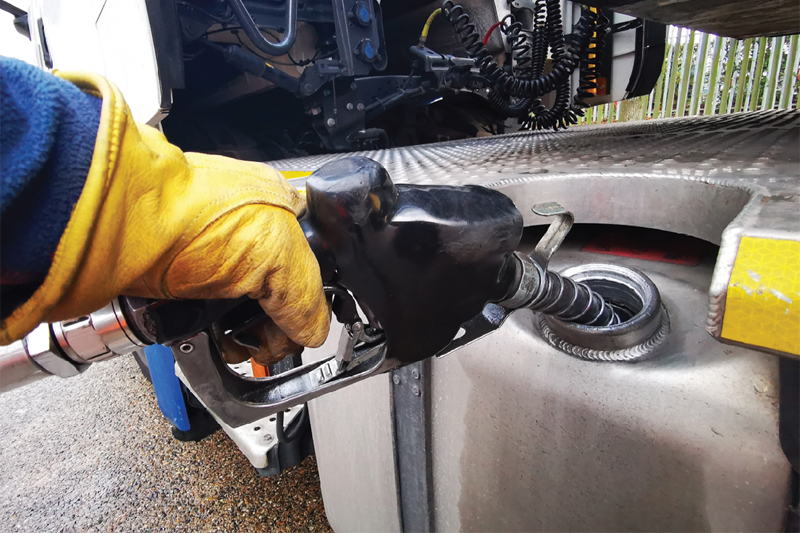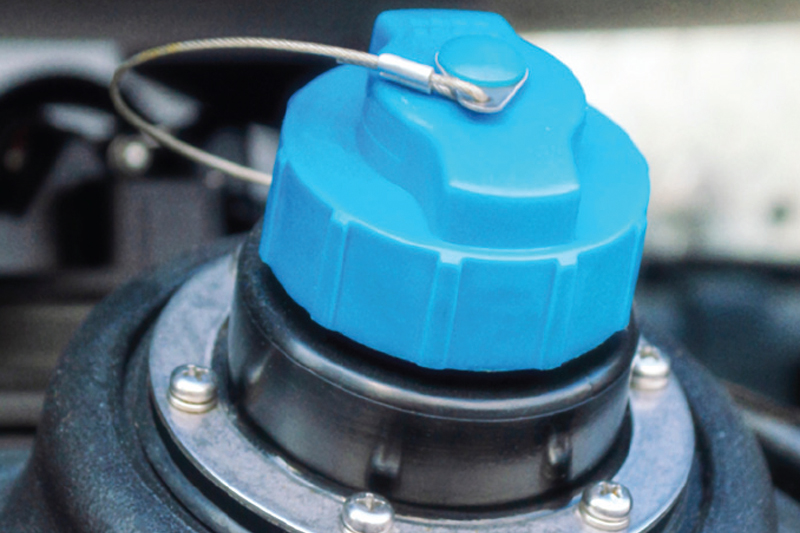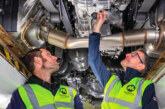
Tom Hyde, Technical Manager, Lubricants, at TotalEnergies Marketing UK, looks at the increasingly important role of today’s lubricants in the fight to cut costs and tackle emissions.
On Britain’s roads, there are 4.4 million LGVs, half a million HGVs, and more than 140,000 buses and coaches. With both inflation and rising prices across the board, that adds up to a serious increase in fuel costs. In fact, Freight Link Europe recently noted that the cost of running a single lorry has risen some £20,000 over the past year.
The rising fuel costs are not only being felt by the owners and operators of these commercial vehicles and fleets, but those who maintain them too. The UK’s commitment to Net Zero by 2050 has also put a new pressure on commercial fleets to make real progress when it comes to playing a part in tackling climate change.
These two factors present significant challenges, some of which are intertwined. How do you get more distance, less wearand- tear, less required maintenance, and fewer emissions from individual vehicles and fleets overall? There is certainly no one size fits all solution but evaluating the full lifecycle of a commercial vehicle with the intention of extending the duration of its functionality could, in some cases, be more efficient in terms of reducing overall carbon than replacing a fleet altogether with newer vehicles.

A critical but often overlooked element when looking to achieve this is the role of lubricants, which can make a significant and tangible difference in several areas.
Diligent diagnostics and testing
Firstly, fuel efficiency can be bolstered through testing and diagnostic systems and programmes for oils and lubricants. In the past, the main focus in this area was whether the oil was ‘still OK’. Now the insight is much more sophisticated, with a more robust range of diagnostics to measure in great detail the presence of wear elements and contaminants whilst providing a clearer picture than ever before about the health and lifespan of the lubricant and parts. Major savings in maintenance and operational costs can be made, with extended lifespans for both materials and equipment meaning vehicles are able to cover more miles before needing remedial works.
Increasing efficiency
In addition, major strides have been made over the past few years in terms of innovating engine oils and lubricants themselves. The result is increased uptime and lower maintenance costs – particularly through products such as our own RUBIA TIR 9900 FE 5W-30 – thanks to reduced friction and viscosity of lubricants. These efficiency gains are more noticeable than ever before, equating to between 2% and 3% increases in fuel efficiency for commercial vehicles – providing both emissions reductions and cost control benefits.

Lubricant lifecycle
The final step in the chain is the disposal and recycling of oils and lubricants. Many waste recycling providers across the UK, such as Slicker, take used oil that would otherwise have been disposed through fuel burning in the marine or energy markets – and reprocess it into a base oil product to create new carbon-efficient lubricating oils. Overall, this emits about 30% less CO2 than lubricants produced from crude oil – again, equating to far less environmental impact.
There are no signs that the pressure resulting from the perfect storm of escalating fuel costs and stakeholder scrutiny over environmental impact will be letting up anytime soon. The army of professionals charged with servicing, maintaining and repairing the UK’s critical fleet of commercial vehicles would be wise to ensure they are considering the full picture when it comes to ensuring the absolute best fuel efficiency. From choosing the right product and effectively monitoring its usage to recycling oil waste, the importance of lubricants cannot be understated.








